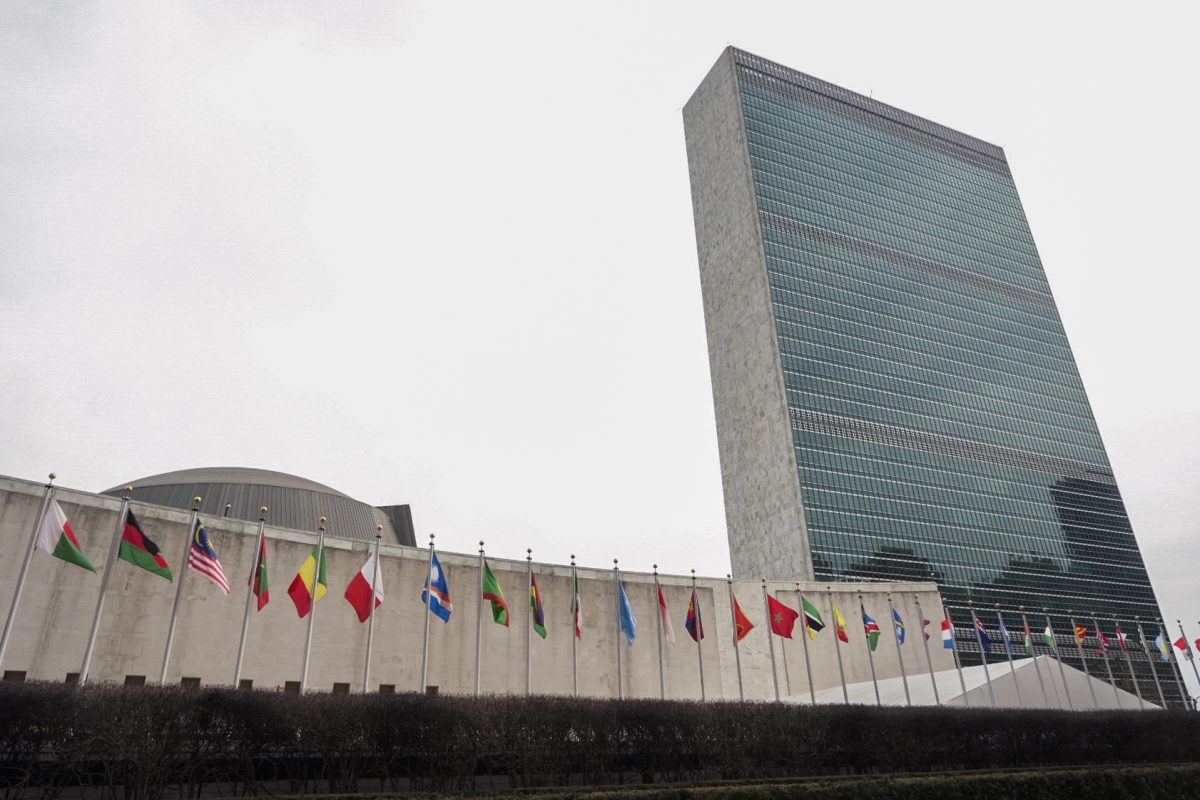The United States recently used its veto power in the United Nations Security Council to block a ceasefire resolution in Gaza, isolating itself from the shared view of most member states. This use of veto is an unfair use of power that prioritizes U.S. interests over the resolution of the conflict at hand.
On Feb. 20, the U.N. Security Council met to review the resolution set forth by Algerian ambassador, Amar Bendjama, which called for an immediate cessation of conflict and ensuring humanitarian aid to the region.
The vote resulted in 13 members in favor, an abstention by the United Kingdom and a vote against it by the United States.
For a resolution to pass in the Security Council, there must be at least nine votes in favor and no vetoes by any of the five permanent members: the U.K., United States, France, China and Russia.
This structure often leaves resolutions presented in the Security Council in a deadlock, as is the case with the past three resolutions to provide aid and demand a ceasefire in Gaza.
The consensus in the Security Council and the General Assembly remains in support of a humanitarian ceasefire.
Aid organizations around the world, such as Doctors Without Borders, have also emphasized their concern over the situation in Gaza, stressing that a ceasefire would allow for supplies, food and medical care to be safely transported into the region.
Still, the United States continues to hesitate to vote for the implementation of a ceasefire resolution and is instead acting under its own negotiations.
The United States’ ambassador to the U.N., Linda Thomas-Greenfield, expressed that the proposed Algerian-drafted resolution would interrupt negotiations to free hostages and would not lead to sustained peace.
After vetoing the Algerian proposed draft, the United States announced that it would be proposing its own resolution to the Security Council which would call for a temporary ceasefire on the condition that Israeli hostages are released.
The United States has repeatedly exerted its veto power to set the terms for how the international community should approach this conflict and has slowed down the possibility for humanitarian aid to reach civilians as the situation worsens in Gaza.
It is unlikely that a resolution proposed by the United States will satisfy all members of the Security Council.
Previously, China and Russia had vetoed a U.S. resolution that outlined a temporary cessation of violence and condemned Hamas. The Security Council will remain at a standstill regarding the situation unless the permanent members can agree on a resolution.
While members of the Security Council remain at odds with one another, other states are continuing to find ways to demand an immediate ceasefire.
Last month, South Africa brought a case against Israel to the International Court of Justice, accusing the state of committing genocide. Although the ruling did not call for an immediate ceasefire, South Africa continues to push for ceasefire and accountability.
Beginning on Feb. 19, the ICJ heard legal arguments from more than 50 countries and three international organizations on the legality of Israel’s policies.
At these hearings, legal representatives for South Africa accused Israel of apartheid. The ICJ is expected to issue a non-binding advisory opinion within the next five months.
Moreover, Nicaragua is considering intervening in proceedings at the World Court to join South Africa as a party to the genocide case.
It is evident that the majority opinion on the issue is that an immediate ceasefire needs to be implemented, while the United States remains an outcast in seeing this demand take effect.
During the discussions of the Algerian-drafted resolution at the Security Council, the Russian Federation’s delegation stressed that since the anticipated U.S. draft only calls for a temporary ceasefire, “there is no real alternative to the Algerian draft.”
The United States’ repeated use of its veto power undermines the impact that non-permanent members of the Security Council have in matters of international security and peace.












